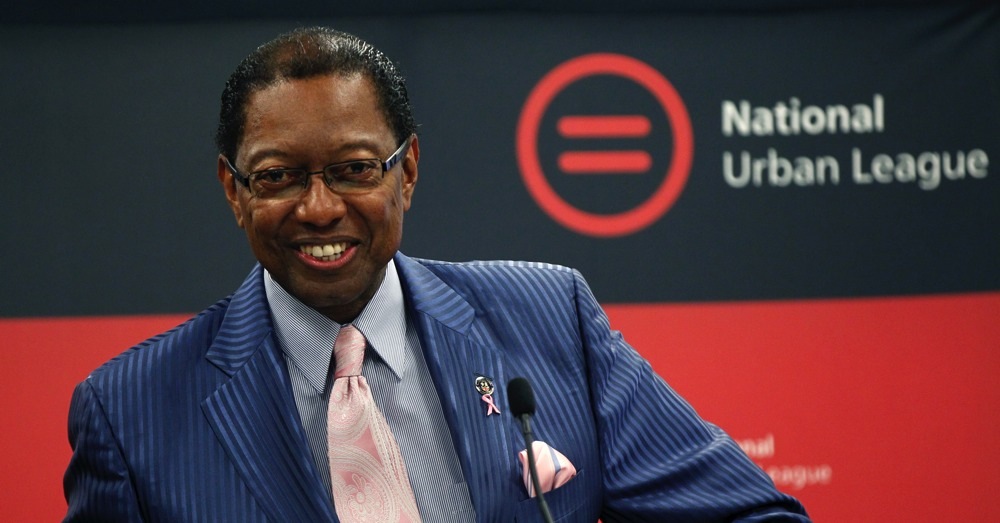Connecting state and local government leaders
In a guest article, Mayor-President Melvin L. “Kip” Holden discusses what it takes for small- and medium-sized cities to become digital leaders.
The consolidated government of the City of Baton Rouge and Parish of East Baton Rouge in Louisiana is going digital. Mayor-President Melvin L. “Kip” Holden recently launched the City-Parish’s open data portal, “Open Data BR,” to increase citizen engagement, enhance service delivery, and boost economic development. As Baton Rouge’s technology sector—including an IBM service center that will soon employ more than 800 people— continues to grow, the City-Parish is committed to digital innovation. Under Mayor-President Holden’s leadership, the City-Parish is taking this commitment a step further with a goal of utilizing initiatives like Open Data BR to power the City-Parish toward a vision for becoming a technology hub for the Southeast. In the following guest article for Route Fifty, Holden explains what it takes for small- and mid-sized cities like Baton Rouge to become digital leaders.
In 2013, IBM announced the development of an 800-person international service center in downtown Baton Rouge. This announcement came on the heels of a successful first few years in Baton Rouge for Electronic Arts, a partnership between our City-Parish, Louisiana State University, and the video game giant that has resulted in more than 300 video game testers who operate out of EA’s North American Testing Center. In addition, just this year, construction began on the first phase of a 30-acre “Water Campus”—a development in downtown Baton Rouge that will eventually co-locate more than 2,000 scientists, engineers, educators and government employees working to solve global water management challenges. When combined with our area’s technology incubators and a number of start-up companies doing amazing work in the digital and technology space, it’s clear to see why we are so excited about the present and future of Baton Rouge.
Serving as Mayor-President of the City-Parish for the past 11 years has been an experience unlike any other, as I’ve had the opportunity to watch our community grow to levels many could have never predicted. The importance of Baton Rouge became amplified overnight when, early in my first term, we saw an influx of tens of thousands of people from the New Orleans area who were displaced by Hurricane Katrina. When one of the worst natural disasters our country has ever seen strikes only miles away, there’s no choice but to react. Overnight, we set up makeshift operations to provide services to those in need. We instantly set out to initiate road widening projects to help accommodate the tremendous population growth we were experiencing. We didn’t shy away from the role we knew we would have to play—we welcomed it with open arms.
I tell this brief story, as we recently acknowledged the 10-year anniversary of Hurricane Katrina making landfall in Louisiana, because it’s relatable to how we have yet again shifted as a city, as a parish, and as a government entity to demonstrate leadership for our surrounding area— this time, as it relates to digital growth.

About two years ago, we started down an introspective path to identify opportunities that existed to better engage with our Baton Rouge citizens, something that has always been a top priority for my administration. We wanted to enhance our existing operations with new technologies and focus on establishing digital platforms as communication tools for improving public sector engagement. As Louisiana’s capital city and the largest county-level jurisdiction in the state, we know that other cities and towns both in Louisiana and across the Gulf Coast often look to us to set the tone for their own policy, economic development, and growth goals. It’s a position we take seriously, and one that constantly drives us to not just talk the talk but to also walk the walk.
As we researched some of the country’s leading “digital cities,” we began to see this concept of “open data.” It wasn’t initially at the forefront of our minds but quickly grew to be part of our conversations, and we began thinking through how an open data initiative would benefit both our internal and external stakeholders. We recognized that while many of the cities we researched were far bigger than Baton Rouge—think New York City, Chicago, and San Francisco—and thus had much more in the way of resources to develop and implement such an initiative, we felt that it was something that held far too much potential for Baton Rouge to not pursue it.
Baton Rouge is poised for tremendous economic growth in the technology and related research sectors, and we recognized that other companies interested in doing business in Baton Rouge would want to see the City-Parish as a willing partner in their growth. Our internal operations also stood to gain from such an initiative, as efforts spent identifying data and publishing it in a publicly consumable manner would also mean that any related siloes that constrict our data—and thus cross-departmental access to it—would be lifted. Finally, we wanted to lead by example; if we could successfully implement an open data initiative, we could catalyze efforts across similarly sized cities. To us, it wasn’t a resource issue—it was an issue in prioritization, and our open data effort instantly became a priority.
In starting with our open data initiative, our first step was to develop a clear strategy and associated goals for why and how open data would benefit Baton Rouge. We knew this would serve as the framework and foundation for measuring our success in building, launching, and maintaining the initiative. Now, we are able to look back to our original goals and measure our efforts. The good news? We believe that we passed with flying colors.
The tremendous amount of research we conducted early on into how other cities have pursued similar open data initiatives was a critical factor in our success. We knew there wouldn’t be a one-size-fits-all solution, but we knew we had much to learn from others’ successes and the things they might have done differently. From there, we built an open data model based on these best practices but adapted it to fit the needs of our local market.
We also asked our own team members for help in executing our open data plan. Their leadership and technical knowledge, especially that of our Chief Administrative Officer William Daniel and Information Services Director Eric Romero, were key qualities that made it possible to move our existing systems into the new format. If you have strong leadership in place, you have already addressed 90 percent of your resource needs.
In order to ensure our internal stakeholders understood why we were going down this path, and to emphasize the benefits our operations and employees would ultimately realize from managing and publishing data in this manner, we made sure to communicate the importance of this initiative early and often with our department heads and their senior leadership teams, who could then share the message with their staff.
Externally, we wanted to foster the same level of understanding, awareness and user adoption. So, when we first started our research, we brought together a number of stakeholders whose roles in our community aligned with this effort, including the Baton Rouge Area Chamber and Louisiana Economic Development. We also began reaching out to non-traditional stakeholders, such as computer science students at our local universities, to gain their perspective on how an open data platform might be of interest to them and to engage them early-on in the concept of civic hacking before they enter our workforce.
It’s exciting to see the unique ways our community is embracing open data. Now, we are turning our attention not only to populating Open Data BR with more data sets, but to interjecting concepts such as data analytics into the picture and working with our universities to determine how we can use analytical observations to inform actions ranging from infrastructure investments to community improvements. This kind of response is exactly what we wanted when we started down this path; Open Data BR is already serving as a catalyst for other initiatives and continuing to make Baton Rouge one of the best places in the nation to live, work and play.
Melvin L. “Kip” Holden is the mayor-president of the consolidated government of the City of Baton Rouge and East Baton Rouge Parish.

NEXT STORY: Stats Shot: Which States Have the Most Residents Without Health Insurance?



